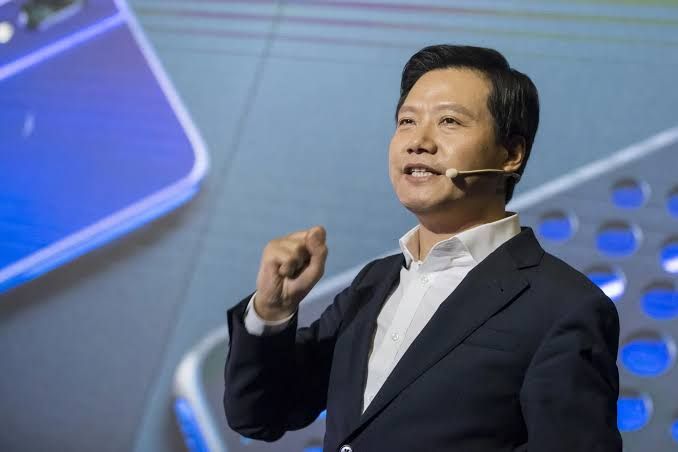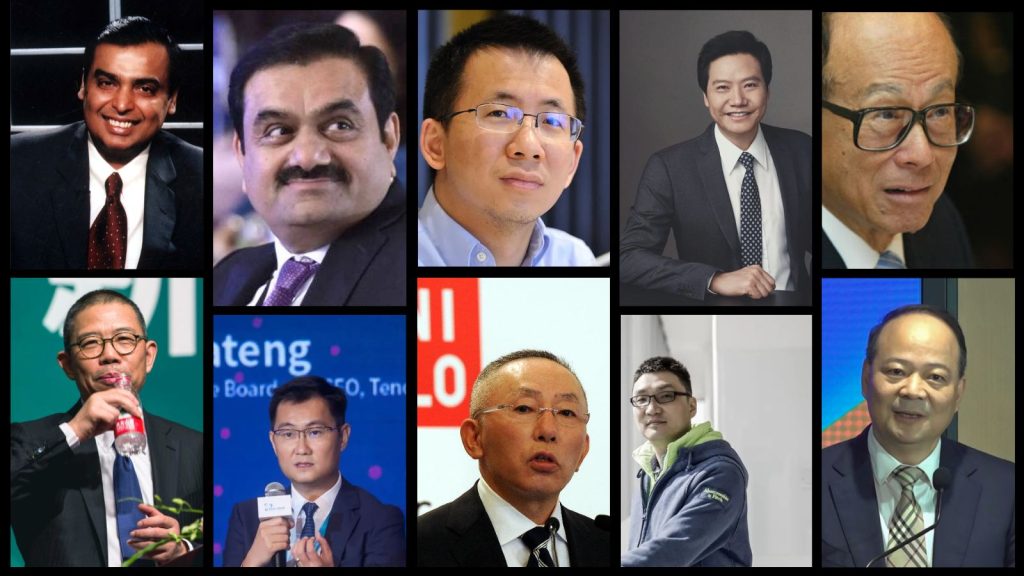“The Top Ten Richest People in Asia” invites you into the fascinating tales of wealth, ambition, and influence spread around the continent. It’s about the billionaires who, with guts, ingenuity, and keen business sense, have transformed audacious ideas into shockingly enormous fortunes. These people are visionaries operating empires in tech, real estate, retail, and manufacturing, thereby transforming sectors and even the environment we live in from names on a list. The way their paths diveriate is interesting. Some began with little and others developed family companies into worldwide behemoths.
Beyond the money, many are investing their riches on things that really important, including hospitals, colleges, or combating climate change. Seeing how they are leaving a legacy in communities as well as in boardrooms motivates me. Often highlighting the vitality of their rapidly growing economies, places including China, India, and Singapore show up a lot Examining this issue can help you to find the factors behind success in the fast-moving Asian marketplaces. It’s about the hustling, the risks, and the great dreams keeping the continent alive not only about money. Their stories inspire you to consider what is feasible with will and a creative spark.
The Top Ten Richest People In Asia
10. Robin Zeng: Contemporary Amperex Technology (CATL) – $37.6 Billion

56 year old Robin Zeng is the brains behind CATL, the top electric vehicle battery maker worldwide. Born in Fujian, China, he grew up in poverty but excelled academically to get a PhD in physics from the Chinese Academy of Sciences. Having worked in electronics, he started CATL in 2011 seeing the possibilities for electric vehicles using lithium-ion batteries. With a third of the worldwide EV battery market, CATL now runs cars for Tesla, BMW, and Volkswagen, therefore his vision paid out. Zeng’s practical leadership inspires creativity; CATL is creating sodium-ion batteries for colder environments. Apart from business, he is quiet and concentrates on renewable energy sources and research. His ascent symbolizes China’s drive toward green technologies, and his company’s alliances with manufacturers all over confirm his impact in the global move toward renewable energy sources.
9. Li Ka-shing: CK Hutchison Holdings – $38.3 Billion

Renowned for his commercial acumen, Li Ka-shing, 96, is a Hong Kong icon sometimes called as “Superman. Born in 1928 in Chaozhou, China, he left for Hong Kong during World War II and dropped out of education at 15 to help his family upon the loss of his father. Beginning with a plastic flower factory in 1950, he established Cheung Kong, which expanded over 50 nations into CK Hutchison, a conglomerate covering ports, communications, retail, and energy. Li’s retail network, Watsons, runs thousands of outlets worldwide, and his telecom enterprises reach millions. His natural ability to see possibilities—like purchasing inexpensive utilities in the UK—built his riches Giving freely, he started Shantou University in his hometown and has given billions for healthcare and education. He ensures his legacy lives even though he retired in 2018 by counseling his son Victor. Globally, businesses are inspired by his path from poverty to power.
8. Colin Huang: PDD Holdings – $40.0 Billion

With PDD Holdings, once Pinduoduo, Colin Huang, 45 transformed e-commerce. Born in Hangzhou, China, he master’s degree from the University of Wisconsin and studied computer science at Zhejiang University. Following spells at Google and Microsoft, he returned to China starting businesses like gaming company Xinyoudi and e-commerce website Ouku.com. He started Pinduoduo in 2015, bringing a group-buying approach that cut rates for rural consumers, therefore confronting behemoths like Alibaba. PDD blends social media and retail to offer more than 900 million consumers by 2025. Though his 28% ownership keeps him among China’s elite, Huang resigned as chairman in 2021 to concentrate on innovation. Renowned for his analytical thinking, he is presently researching agricultural technology with an eye toward modernizing farming. His ascent from a modest origins to internet celebrity emphasizes China’s digital explosion and his skill at upending industries.
7. Lei Jun: Xiaomi – $42.6 Billion

Driven by 55-year- Lei Jun, Xiaomi, a digital behemoth well-known for affordable smart products and cellphones, is under Having grown up in Xiantao, Hubei, he earned a computer science degree from Wuhan University. Early in his career, he oversaw Kingsoft, a Chinese software company, before starting Xiaomi in 2010 with an eye toward competition with Apple. Offering reasonably priced, high-quality devices, Xiaomi rose to be China’s third-largest smartphone manufacturer. With the SU7 model in 2024, Lei’s audacious foray into electric cars has attracted news attention, so pitting Xiaomi against Tesla. He also spreads his IT impact by investing in startups like JOYY Inc. Renowned for extended work hours, Lei looks to Steve Jobs for inspiration on combining charm with strategy. His generosity helps tech education, and new entrepreneurs negotiating China’s cutthroat marketplaces may find resonance in his tenacity and inventiveness tale.
6. Tadashi Yanai & Family: Fast Retailing – $45.1 Billion

With Fast Retailing, 76-year-old Tadashi Yanai developed Uniqlo into a worldwide fashion giant. Born in Yamaguchi, Japan, he studied economics at Waseda University and then joined his father’s tailoring company in 1972. Taking over in 1984, he created the first Uniqlo shop with an eye on reasonably priced, reasonably good casual clothes. Now with more than 2,400 outlets spread over 25 countries, Uniqlo faces Zara and H&M. To vary their fashion empire, Yanai’s family also owns companies like Theory and Helmut Lang. His worldwide effort encompasses North American and Indian outlets, customizing designs to fit local interests. Risky, he once lost millions on a failing business but recovered by simplifying Uniqlo’s supply network. Yanai sponsors grants to help education and guides emerging designers. Driven by his conviction in “clothing for all,” he ranks as the richest person in Japan and a retail icon.
5. Zhang Yiming: ByteDance – $45.6 Billion

41-year-old Zhang Yiming founded ByteDance, the parent of TikHub, therefore transforming world entertainment. Born in Fujian, China, he worked on developing apps in his hostel at Nankai University after studying software engineering Working at Microsoft, he started 99fang.com, a real estate website, then started ByteDance in 2012. With more than a billion users, TikHub became a cultural powerhouse mixing viral trends with AI-driven content. Owning 21% of ByteDance, which today valued at $400 billion, Zhang is Under US investigation on data privacy, he relocated to Singapore, negotiating world politics and growing Douyin, the Chinese equivalent of TikHub. Private by nature, he stays out of the limelight and concentrates on tech innovation. His algorithms have changed media consumption, and his contributions help STEM education in China. Zhang’s path from a small-town coder to a tech titan highlights the global reach and digital revolution Asia is undergoing.
4. Ma Huateng: Tencent Holdings – $53.3 Billion

Leading Tencent, China’s tech powerhouse, Ma Huateng, 53 is known as Pony Ma. Born in Guangdong, he co-founded Tencent in 1998 after studying computer science at Shenzhen University while employed as a software developer. Tencent became a colossus with WeChat, with 1.2 billion users plus gaming hits like Honor of Kings, beginning with messaging software QQ. Ma’s interests cover Tesla, Spotify, and Epic Games, therefore enhancing his worldwide influence. Tencent’s finance division rules mobile payments in China, while its AI research drives solutions for education and healthcare. Ma survived regulatory crackdowns in 2021 but adjusted, giving society impact first priority. Quietly generous, he supports disaster assistance and rural schools. Tencent is pillar of Asia’s digital explosion since his vision combines profit with purpose. Ma’s ascent from a small-town coder to a worldwide influencer demonstrates the value of tenacity in a sector undergoing rapid transformation.
3. Gautam Adani: Adani Group – $54.7 Billion

Head of the massive infrastructure company Adani Group, India, Gautam Adani is 62. Born in Ahmedabad, he left college at sixteen to deal diamonds in Mumbai, so understanding markets directly. In 1988, he began a trading enterprise, shifting to ports and power in the 1990s. Adani oversees airports like Mumbai International and the biggest private port in India today, Mundra. With an eye toward 45 GW of solar power by 2030, his energy ventures encompass coal, gas, and a $70 billion investment into renewables. Acquiring Holcim’s cement business in 2022 became Adani India’s second-largest cement producer. Notwithstanding a 2023 short-seller campaign, he recovered confidence and raised billions for growth. Adani’s sporting endeavors include cricket leagues; his charitable work develops hospitals and schools in rural Gujarat. His rags-to- riches story captures India’s economic aspirations and fuels infrastructure and employment all around.
2. Zhong Shanshan: Nongfu Spring, Beijing Wantai – $56.0 Billion

Zhong Shanshan, 70, is China’s richest person, controlling Nongfu Spring and Beijing Wantai. Born in Hangzhou, he left school during the Cultural Revolution to work as a bricklayer and reporter. Renowned for its elegant branding and quality teas, he started Nongfu Spring in 1996, currently China’s leading brand of bottled water. Rising throughout the epidemic, Beijing Wantai, his pharmaceutical division develops vaccinations and Covid-19 testing. Zhong’s empire grew from his natural ability to identify niches—like health-conscious beverages. Unlike ostentatious tycoons, he avoids publicity and gets known as the “Lone Wolf.” His companies employ thousands, therefore strengthening rural communities, and he covertly sponsors medical research. Zhong is a symbol of self-made success since his road from suffering to success shows how tenacity and simplicity can triumph in China’s packed markets.
1. Mukesh Ambani: Reliance Industries – $86.9 Billion

The 67-year-old richest person in Asia sits on Reliance Industries, a conglomerate including retail, communications, and energy. Born in Mumbai, he studied chemical engineering at Stanford but returned in 1981 to help his father run his company. Having inherited Reliance, he grew it into the biggest firm in India, with Jio telecom projected to have 476 million subscribers by 2025. While Reliance Retail competes with Amazon with 18,000 outlets, Jio’s affordable internet tariffs set off India’s digital transformation. Globally, Ambani’s Jamnagar oil refineries are hubs, and by 2030 his green energy push seeks 100 GW of solar power. Starting Jio Financial Services in 2024 in association with BlackRock, He owns the Mumbai Indians cricket team and is charitable to hospitals and education for impoverished children. Reliance is now a worldwide participant thanks to Ambani’s vision, which captures India’s economic powerhouse growth.

